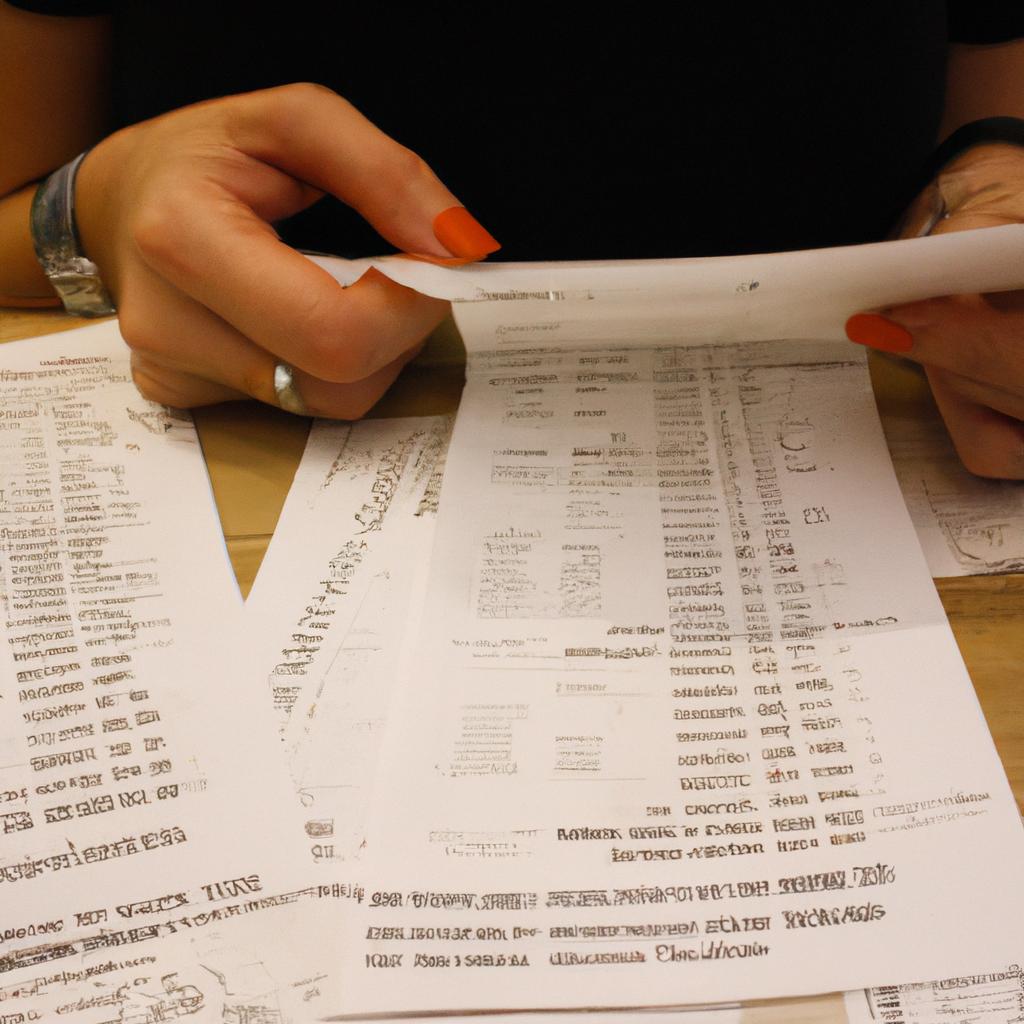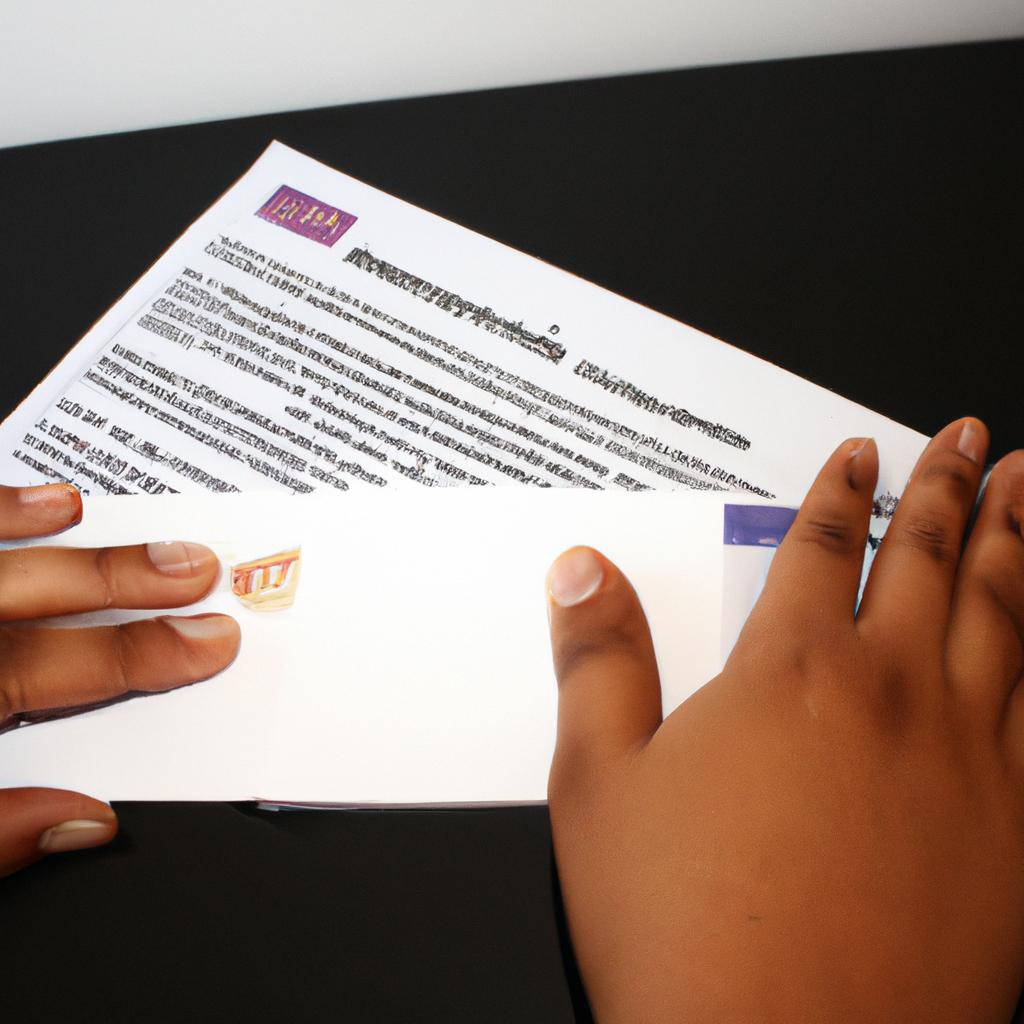The restaurant industry is known for its high failure rate, with many aspiring entrepreneurs struggling to secure the necessary funding to start their own establishments. However, there is a glimmer of hope in the form of grants specifically designed to provide financial assistance to bar and grill startups. These grants can offer a lifeline to restaurant entrepreneurs, helping them overcome the initial hurdles and turn their dreams into reality.
One such example is the case of John Smith, a passionate chef who had always dreamed of opening his own bar and grill. Despite having a solid business plan and a clear vision, he found it challenging to secure traditional financing from banks or investors. However, by diligently researching available grant opportunities targeted at restaurant startups, John was able to find an organization that provided him with the necessary funds to launch his venture successfully.
This article aims to shed light on the various grants available for bar and grill startups, exploring their eligibility criteria, application process, and potential benefits. By understanding these financial aid options, aspiring restaurant entrepreneurs can gain valuable insights into securing much-needed support for their endeavors.
Types of grants available for restaurant entrepreneurs
Types of Grants Available for Restaurant Entrepreneurs
When it comes to starting a bar and grill, securing financial assistance through grants can be crucial. These grants provide entrepreneurs with the necessary capital to kickstart their business ventures. In this section, we will explore some of the types of grants available for restaurant entrepreneurs.
One notable example is the Small Business Administration (SBA) Restaurant Revitalization Fund Grant. This grant aims to support eligible businesses in the foodservice industry that have been impacted by the COVID-19 pandemic. It provides funding to cover various expenses such as payroll costs, rent, utilities, and supplies. The SBA has allocated $28.6 billion for this program to aid struggling restaurant owners across the United States.
In addition to federal grants like the SBA’s Restaurant Revitalization Fund Grant, there are also private foundations and organizations that offer financial support specifically tailored for restaurant startups. These grants may vary in terms of eligibility criteria and funding amounts but generally aim to foster entrepreneurship within the culinary industry.
To give you an idea of what these grants entail and how they can benefit aspiring restaurateurs, here are some key features:
- Funding opportunities: Grants often provide non-repayable funds or low-interest loans to help entrepreneurs cover initial setup costs, equipment purchases, marketing expenses, and more.
- Mentorship programs: Some grants come bundled with mentorship initiatives where recipients receive guidance from experienced professionals who can share valuable insights into running a successful bar and grill establishment.
- Networking opportunities: Certain grants facilitate networking events or workshops where entrepreneurs can connect with industry experts, potential investors, and other individuals who can contribute to their venture’s growth.
- Educational resources: Many grant programs offer access to educational materials or training courses designed specifically for restaurant entrepreneurs. These resources can help enhance business skills and improve overall operational efficiency.
By exploring these types of grants available for restaurant entrepreneurs, one can gain a better understanding of the financial assistance opportunities that can help pave the way to a successful bar and grill startup. In the subsequent section, we will delve into the eligibility criteria for these grants, ensuring you are well-equipped to navigate through application processes and increase your chances of securing funding.
Eligibility criteria for bar and grill startup grants
For aspiring bar and grill owners, there are several types of grants available that can provide financial assistance to kickstart their entrepreneurial journey. Let’s take a look at some examples:
One such grant is the Small Business Administration (SBA) Restaurant Revitalization Fund, which was established in response to the COVID-19 pandemic. This fund provides funding to eligible businesses, including bars and grills, to cover expenses such as payroll costs, rent or mortgage payments, utilities, and more. The SBA aims to support small businesses by offering funds specifically tailored to the challenges faced by restaurant entrepreneurs.
To give you an idea of how these grants work, let’s consider a hypothetical case study involving John, who dreams of opening his own bar and grill. With limited personal savings and minimal access to traditional financing options due to lack of collateral, John decides to explore grant opportunities. He discovers the SBA Restaurant Revitalization Fund and successfully applies for it. This grant not only provides him with much-needed capital but also gives him a sense of reassurance knowing that his dream is being supported by an organization committed to helping small businesses thrive.
In addition to government-funded programs like the SBA Restaurant Revitalization Fund, there are various other sources of financial assistance available for restaurant entrepreneurs:
- Private foundations: Some charitable organizations offer grants specifically designed for individuals looking to start or expand restaurants.
- Local economic development agencies: These agencies often have programs aimed at promoting entrepreneurship within their communities, which may include grants targeted towards bar and grill startups.
- Industry-specific associations: Certain industry associations provide grants or scholarships to help new entrepreneurs enter the market and contribute to the growth of the sector.
By exploring these different avenues for funding through grants, aspiring bar and grill owners can increase their chances of obtaining financial support while pursuing their passion for culinary entrepreneurship.
| Grant Source | Description |
|---|---|
| Small Business Administration (SBA) Restaurant Revitalization Fund | Provides funding for eligible businesses to cover various expenses, tailored specifically to the challenges faced by restaurant entrepreneurs. |
| Private foundations | Charitable organizations that offer grants designed for individuals looking to start or expand restaurants. |
| Local economic development agencies | Agencies with programs aimed at promoting entrepreneurship within communities, often including grants for bar and grill startups. |
| Industry-specific associations | Associations that provide grants or scholarships to support new entrepreneurs entering the culinary sector and contribute to its growth. |
In conclusion, aspiring bar and grill owners have access to a range of grant opportunities that can alleviate some of the financial burden associated with starting a new venture. Grants such as the SBA Restaurant Revitalization Fund, along with those offered by private foundations, local economic development agencies, and industry-specific associations, provide critical financial assistance while also instilling a sense of support and validation in entrepreneurs like John.
Now that we have explored the types of grants available for restaurant entrepreneurs, let’s delve into the eligibility criteria required to qualify for these valuable resources.
Application process for restaurant startup grants
Having understood the eligibility criteria, it is now essential to delve into the application process required to obtain restaurant startup grants. To better illustrate this process, let’s consider a hypothetical case study of an aspiring entrepreneur named Jane who dreams of opening her own bar and grill establishment.
Application Process for Restaurant Startup Grants:
-
Research available grants: The first step in applying for restaurant startup grants is to thoroughly research and identify potential grant opportunities that align with your business goals. Explore government programs, private foundations, and industry-specific organizations that offer financial assistance to restaurant entrepreneurs. For instance, Jane might discover a local economic development agency offering a grant specifically tailored towards supporting small businesses in the food service industry.
-
Prepare a comprehensive business plan: Grant providers often require applicants to submit a detailed business plan outlining their concept, market analysis, target audience, marketing strategies, financial projections, and growth plan. This helps them assess the viability and potential impact of your venture. Jane would meticulously outline her vision for the bar and grill, highlighting unique selling points such as locally sourced ingredients and live music events.
-
Gather necessary documentation: In addition to a well-crafted business plan, you will likely need various documents when applying for restaurant startup grants. These may include proof of legal entity registration (such as articles of incorporation or LLC formation), tax identification number (TIN), personal identification documents (e.g., driver’s license or passport), financial statements (including profit/loss statements and balance sheets), and any licenses or permits relevant to operating a bar and grill establishment.
-
Submit the application package: Once all necessary materials are gathered, carefully review each grant provider’s requirements before submitting your application package. Ensure that you include all required documents, adhere to any formatting guidelines, and meet specific deadlines. Jane would compile her business plan, supporting documentation, and a compelling grant proposal that clearly articulates the purpose of her bar and grill venture and why it deserves financial support.
- Grants can provide crucial funding for entrepreneurs pursuing their dreams.
- Financial assistance helps aspiring restaurant owners overcome initial hurdles.
- Grant programs foster economic growth by supporting small businesses in the food service industry.
- Successful grants empower individuals to create vibrant dining experiences in their communities.
Table: Benefits of Restaurant Startup Grants
| Benefit | Description |
|---|---|
| Accessible Funding | Grants offer a non-repayable source of capital, reducing the burden on entrepreneurs’ finances. |
| Expertise and Mentorship | Many grant programs provide access to experienced mentors who guide recipients through challenges. |
| Visibility | Receiving a grant enhances your credibility and raises awareness about your establishment’s mission. |
| Networking Opportunities | Grant-related events facilitate connections with other industry professionals and potential partners. |
In conclusion, securing restaurant startup grants involves thorough research, meticulous planning, document preparation, and timely submission. By following these steps, entrepreneurs like Jane can increase their chances of obtaining vital financial assistance for their bar and grill ventures.
Before delving into important considerations before applying for grants, let us explore various factors that applicants should bear in mind throughout the application process.
Important considerations before applying for grants
Moving forward with the application process, it is crucial to understand the steps and requirements involved in securing grants for your bar and grill startup. By carefully following these guidelines, you can increase your chances of receiving financial assistance. Let’s explore the key considerations before applying for restaurant startup grants.
Understanding Eligibility Criteria:
Before diving into the application process, familiarize yourself with the eligibility criteria set by grant providers. These requirements may vary depending on the organization offering the grant, but common factors often include having a solid business plan, demonstrating industry experience or expertise, showcasing potential for growth and sustainability, and providing evidence of financial need. For instance, consider John, an aspiring entrepreneur who dreams of opening a bar and grill in his local community. To meet the eligibility criteria outlined by various grant organizations, he must ensure that his concept aligns with their specific focus areas or target demographics.
Preparing Required Documents:
To successfully apply for restaurant startup grants, meticulous preparation of all necessary documents is essential. Some typical documents requested during the application process may include:
- Business Plan – A comprehensive outline detailing your bar and grill concept, market analysis, marketing strategies, projected financial statements (such as income statements and cash flow forecasts), and management structure.
- Financial Projections – Including estimated start-up costs, operating expenses projections for at least three years ahead, sales forecast based on market research data.
- Personal Background Information – Providing details about relevant experience in the foodservice industry or any transferable skills that demonstrate your ability to manage a successful bar and grill establishment.
- Legal Documentation – Such as licenses required to operate a restaurant business in your area.
Key Tips for Successful Applications:
When preparing your grant applications for bar and grill startups, keep these tips in mind:
- Pay close attention to each grant provider’s specific requirements
- Tailor your application materials accordingly to demonstrate alignment with their goals and objectives.
- Be concise, clear, and professional in your writing style.
- Provide supporting evidence such as market research data, testimonials from potential customers, or letters of intent from suppliers to strengthen your application.
By following these guidelines, you can present a strong case for funding assistance to support your bar and grill startup.
As you navigate through the application process, it is crucial to be aware of the available options provided by various funding organizations specializing in assisting bar and grill startups. Let’s now delve into an overview of the top funding organizations for bar and grill entrepreneurs.
Top funding organizations for bar and grill startups
Having understood the significance of grants in funding bar and grill startups, it is crucial to consider several factors before proceeding with the application process. By taking these important considerations into account, restaurant entrepreneurs can enhance their chances of securing financial assistance.
Paragraph 1:
To illustrate the importance of careful planning, let’s consider a hypothetical case study. Imagine Sarah, an aspiring entrepreneur passionate about opening her own bar and grill. Before applying for grants, Sarah thoroughly researched various aspects related to her business plan, such as market analysis, target audience, and competitive landscape. This preliminary work allowed her to identify potential grant opportunities that aligned with her specific needs and objectives.
- Persistence: The path to securing a grant can be challenging; therefore, maintaining persistence throughout the application process is essential.
- Eligibility requirements: Carefully review eligibility criteria set by each funding organization to ensure your startup meets all necessary qualifications.
- Documentation: Prepare comprehensive documentation including a detailed business plan, financial projections, market research findings, and any other relevant supporting documents.
- Deadlines: Stay organized and keep track of application deadlines to avoid missing out on potential opportunities.
Paragraph 2:
In addition to considering these factors, it is beneficial for restaurant entrepreneurs seeking grants to familiarize themselves with common mistakes made during the application process. Understanding these pitfalls will help applicants take proactive measures to maximize their chances of success.
| Common Mistakes | Impact |
|---|---|
| Incomplete or poorly written applications | May lead to disqualification |
| Lack of clarity in outlining goals and objectives | Funding organizations may not fully understand the purpose of the project |
| Ignoring specific instructions or guidelines | Application could be deemed non-compliant |
| Failing to demonstrate sustainability or long-term viability | Less likely to receive funding |
Paragraph 3:
By carefully addressing these important considerations and avoiding common mistakes along the way, restaurant entrepreneurs can significantly increase their chances of securing grants for their bar and grill startups. Developing a strong application that showcases the business’s potential impact on the community and economy is crucial in attracting funding organizations’ attention.
With these considerations in mind, let’s now explore some valuable tips to ensure a successful grant application for restaurant entrepreneurs seeking financial assistance.
Tips for a successful grant application for restaurant entrepreneurs
Transition from previous section H2:
Having explored the top funding organizations for bar and grill startups, let us now turn our attention to some valuable tips that can greatly enhance your chances of securing a grant. By following these guidelines, you will be able to submit a strong application that highlights your potential as a restaurant entrepreneur.
Tips for a successful grant application for restaurant entrepreneurs
To illustrate how effective these tips can be, let’s consider the case study of John, an aspiring restaurateur who recently applied for grants to start his own bar and grill establishment. These tried-and-tested strategies helped him navigate the competitive landscape and secure the necessary financial support:
-
Craft a compelling narrative: When writing your grant application, focus on telling a captivating story about your vision and passion for running a successful bar and grill. Highlight your unique selling proposition, emphasizing how it sets you apart from other competitors in the industry. For instance, John showcased his extensive experience in hospitality management and his commitment to creating an inclusive dining environment where customers feel welcome.
-
Demonstrate market viability: Grants assessors are keenly interested in understanding the commercial feasibility of your business concept. Conduct thorough market research to identify gaps in the local food scene that your bar and grill can fill effectively. Share relevant data such as customer demographics, competitor analysis, and projected revenue streams to demonstrate the demand and profitability of your venture.
-
Create a comprehensive budget plan: Showcasing meticulous financial planning is crucial when applying for grants. Develop a detailed budget outline that encompasses all aspects of starting and operating a bar and grill – from lease agreements and equipment costs to staffing expenses and marketing initiatives. This level of preparedness exhibits professionalism while assuring potential funders that their investment will be used responsibly.
-
Establish strategic partnerships: Collaborating with community organizations or local suppliers not only strengthens your network but also enhances your credibility as an entrepreneur dedicated to supporting the local economy. John, for instance, formed partnerships with nearby farmers and breweries to source fresh ingredients and locally crafted beverages. This demonstrated his commitment to sustainability and community development.
In addition to these tips, refer to the table below which highlights key elements that can evoke an emotional response from grant assessors:
| Emotional triggers | Impact on Grant Assessors |
|---|---|
| Demonstrating social impact | Generates enthusiasm and support |
| Addressing a pressing need in the community | Highlights your relevance and potential success |
| Showcasing dedication to inclusivity and diversity | Attracts attention and recognition of your values |
| Illustrating resilience in overcoming obstacles | Inspires confidence in your ability to overcome challenges |
Through implementing these strategies while incorporating emotional triggers into your application, you will be well-positioned to impress grant assessors with both the practicality and passion driving your bar and grill startup endeavor.
Remember, securing funding is not solely dependent on meeting technical requirements; it also relies heavily on effectively communicating your vision, market viability, financial planning, and strategic collaborations. By following these tips, you increase the likelihood of receiving the necessary financial assistance to turn your restaurant dreams into reality.
 Catch 22 MKE
Catch 22 MKE



